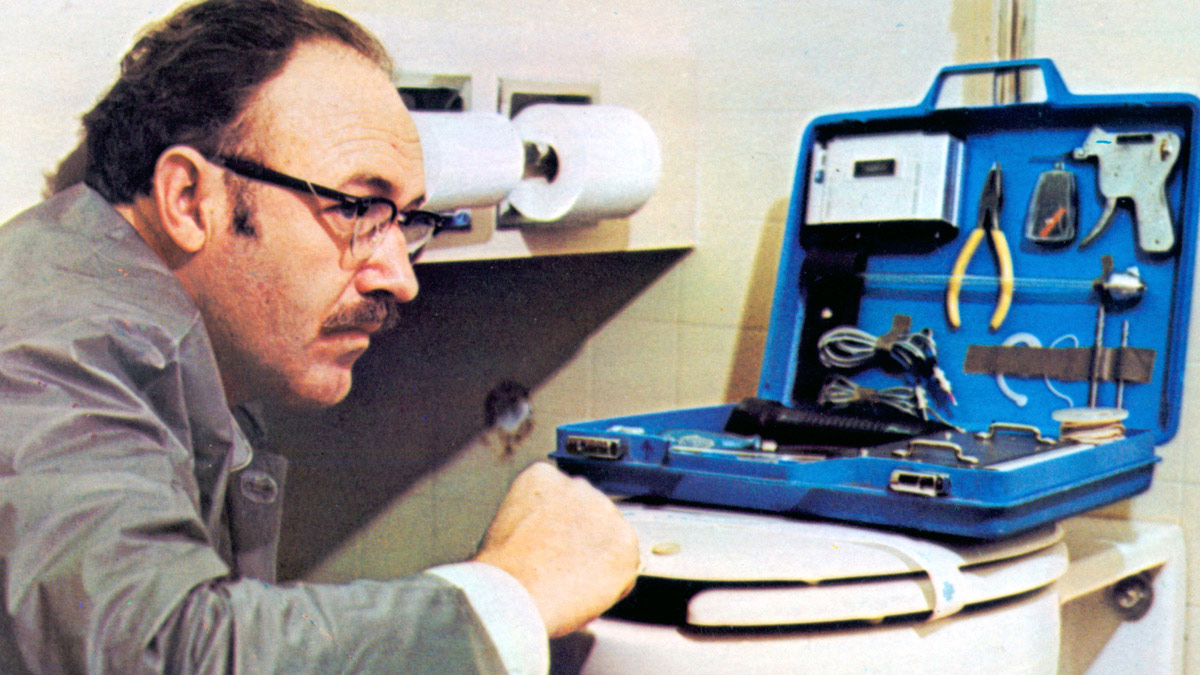
(c) Photofest / Getty Images
``The Conversation'' Coppola's 1974 work is a sharp warning for modern society.
2020.04.18
Modernity influences many filmmakers
Wiretapping and surveillance are hidden in our daily lives. Knowing this, Harry is extremely nervous about protecting his privacy, and his paranoia grows more and more. Towards the end of the movie, Harry, who has been eavesdropping and manipulating others, suddenly becomes the target of surveillance. Suspecting that a wiretapping device has been set up in his room, Harry scans every corner of the room. They toppled the floor, destroyed things, and searched everywhere, but no eavesdropping device was found.
Is there really such a thing as a wiretapping device? Perhaps this was the result of Harry's paranoia, which made him more obsessed with having his privacy invaded than anyone else. Coppola does not explicitly state The Truth by giving the story an open ending, but I think this question has an even more realistic resonance in today's society where the Internet and SNS have spread.
Interestingly, in recent years, contemporary film directors such as ` `The Circle '' (2017), ` `Bad Genius '' (2017), and `` The Coming Storm '' (2017) have said that they were influenced by ``The Conversation.'' An increasing number of cases are being made public. One reason for this is perhaps that the sense of fear and paranoia that the film depicts about the erosion of privacy due to eavesdropping and surveillance is more closely tied to the modern internet society in which we live.
As of 2000, Coppola himself said, ``Privacy issues are becoming more and more serious today, due to the spread of the Internet. Is that possible?” he says.
``The Circle'' depicts the near future that can be created by social media culture, where all experiences are shared through a camera. Director James Ponsoldt said in an interview with the author, ``In many paranoid conspiracy stories that have been created in the past, a fascist/totalitarian government forces us into a surveillance society.'' "The situation in which they had to survive by keeping an eye on each other was well described."
On the other hand, in modern times, ``smartphones are idolized and worshiped, and some people have come to believe that the most meaningful relationship among themselves is the one between themselves and their smartphones.'' He expressed his opinion as follows:
"We are somewhat aware that surveillance is taking place in the real world through the CIA, NSA (National Security Agency), and WikiLeaks, but the culture we live in is one in which we are all spying on each other, not just through the CIA or NSA, and everything can be recorded or filmed in various ways. We are already beginning to become that kind of society. In other words, I think we have created a surveillance society with our own hands."
``The Conversation'' is an early warning of the privacy crisis in which the very desire to peer into other people's private lives through eavesdropping creates a society in which people monitor each other.
Text: Takuya Tsunekawa
He has written interviews and reviews for magazines such as iD Japan, Kinema Junpo, and Nobody. He also contributed a column to ``Some Freaks,'' a screening event that features movies about misfits. Co-authored “The Great Anatomy of Netflix” (DU BOOKS).
(c) Photofest / Getty Images

